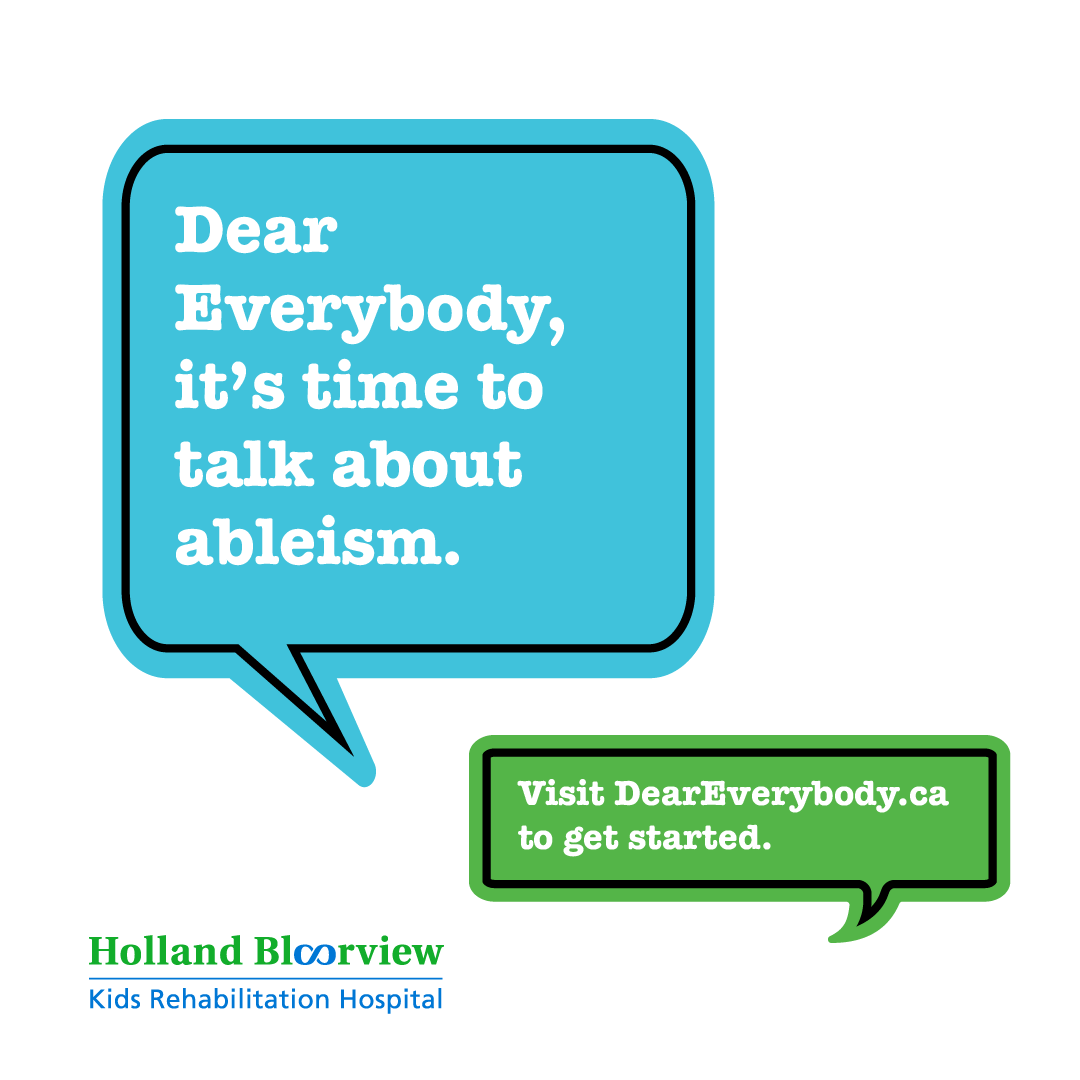Let’s talk about…
Ableism and Representation
Ask 18-year-old Rachel to describe herself and she’ll tell you how much she loves pop artists like Olivia Rodrigo and Tate McRae, and is quick to gush about her favourite musical Dear Evan Hansen. As a lover of all things creative and musical, it’s not surprising that Rachel has been in her fair share of school productions, like Beauty and the Beast.
As a writer, a storyteller, she’s now taking that passion for using her words to university as a journalism major.
In fact, she’s particularly passionate about the stories that are all too often untold, which reflect her own experiences as an Asian woman with cerebral palsy.
You have a lot of different interests, so what interests you about the Dear Everybody campaign?
I am Asian, and when I look at TV shows, or movies, or musicals, all the disabled representation is of white people. As an Asian person, I’m really excited to promote intersectional representation because I think it’s so important. In addition to my disability, I also have other aspects of me that are also marginalized.
How would you describe ableism?
As a disabled person, there’s the assumption that just because I use a wheelchair, people think I’m less capable. So, I don’t define ableism as discrimination against those who are different from you in ability. My definition of ableism is that society disables us. Society is built for the white, able-bodied male, so I think society disables us more than we disable ourselves.
As a disabled person, I’m not helpless. Disability isn’t a plotline. I am an individual. Please stop putting me in a box.
Let’s talk about that: what does ableism look like when it comes to disability and representation?
Connections are part of the reason why disabled people are not represented in the media because we don’t have the opportunity to go to these places because, news flash, they’re not accessible. So, I think we’re limited in the media because we don’t have the connections. When you cast us, the casting office isn’t accessible and we’re passed over for an easier option, like someone who is not disabled and we’re going to put them in a wheelchair. I think that’s what limits us. Just because I have a different way of doing it doesn’t mean I can’t do it.
And I don’t think they realize that they are being discriminatory. I think people are like, “Oh, I’m giving this opportunity—I want to increase representation,” but they go about it 300 different wrong ways, and eventually, it’s like: no, that’s not the way you do it.
We need shows and movies where disability is not a plot line or a stereotype. Again, my life is not for you to laugh at. Everything that I go through is something that I go through on a daily basis. You don’t get to laugh at that. You don’t get to ridicule it.
What other ways does ableism occur in society?
When people call those who look like me the R-word—I’m not cognitively affected by my disability, and even if I was, it’s not right for you to call me that because it limits who I am to you. Similarly, we always say, “I was paralyzed with fear,” but paralysis is an actual condition some people live with. Maybe say, “I was so fearful I couldn’t move,” instead. We need to use words that don’t have negative connotations for others.
Do you have any more advice for people just starting to challenge ableism in their own lives?
You need to look around. You need to listen. You need to observe. You need to talk to people. You don’t shy away from them. I’m not an alien. I am a human with flesh and blood, just like you. Please stop staring at me like I’m a complete alien. You need to take the time to listen and to actually care about people that are not you and that look different from you. You need to listen to our stories, listen to our voices. If you don’t, the world is never going to change. If we listen to everyone’s story, we are going to make this world a better place because it’s going to be more inclusive and more loving.
